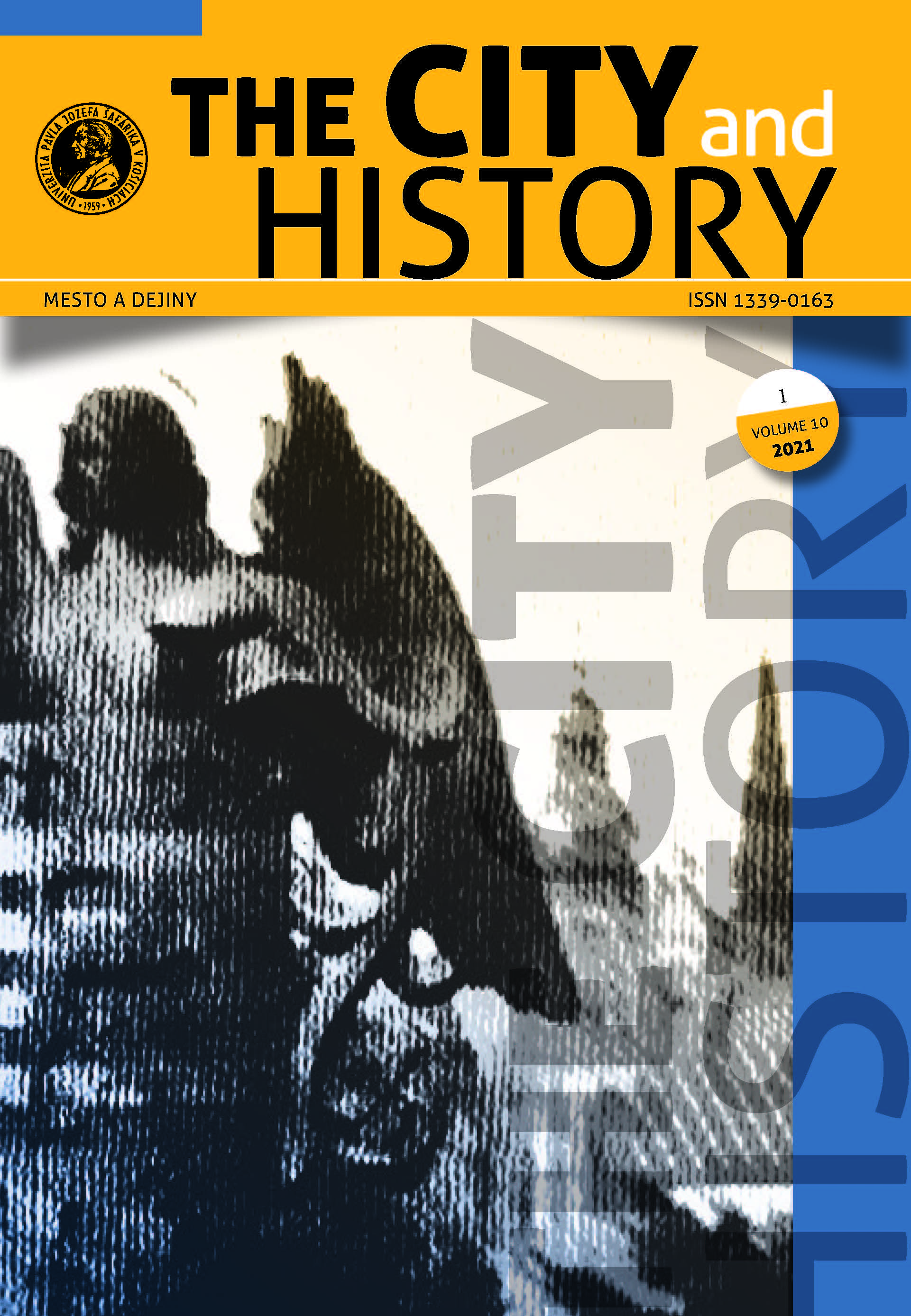
We kindly inform you that, as long as the subject affiliation of our 300.000+ articles is in progress, you might get unsufficient or no results on your third level or second level search. In this case, please broaden your search criteria.

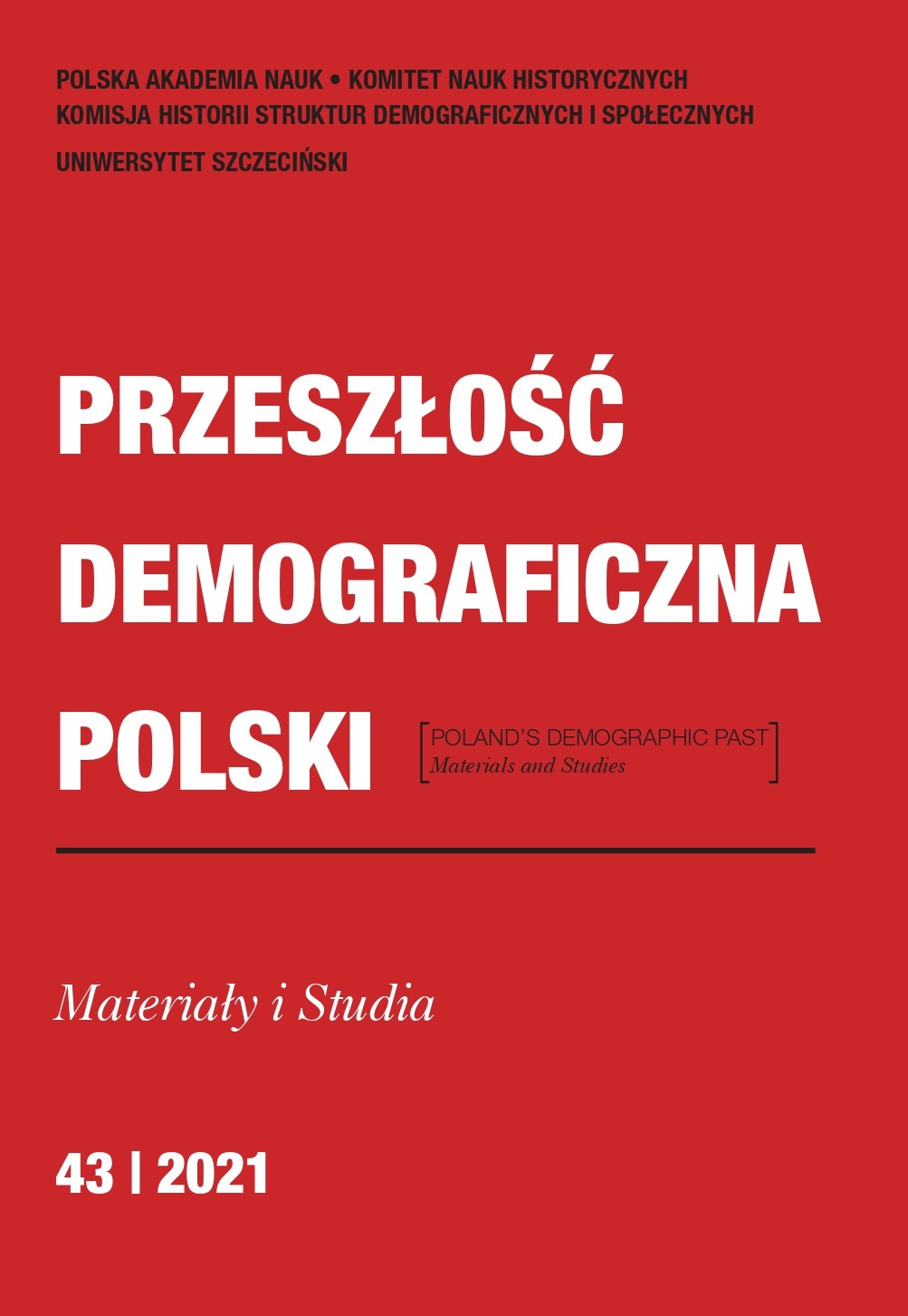
The article showcases new proposals for research on the urbanization processes of Krakow Voivodeship (province) between the 16th and 18th centuries referred to the Polish-Lithuanian Commonwealth as a whole. The possible methods of study have been specified for an area where an urban network had already been formed. It comprised some 80 towns, mostly moderate in size, with a variety of functions. The period under discussion is crucial for the functioning of Polish urban areas due to the predominance of the manorial farm system relying on serfdom and corvée. Population exchange mechanisms are addressed against a broader background of social history. It is proposed that analyses of the urbanization of the voivodeship should be linked to its central hub – the Krakow urban complex. The discussion also extends to the criteria underlying the formulation of the study questionnaire. A relational database created on the basis of mass sources would cover the population of Krakow and successively other towns in the voivodeship, selected according to their functions. Such procedure makes it possible to demonstrate the migration trends across the voivodeship in a long-term historical process.
More...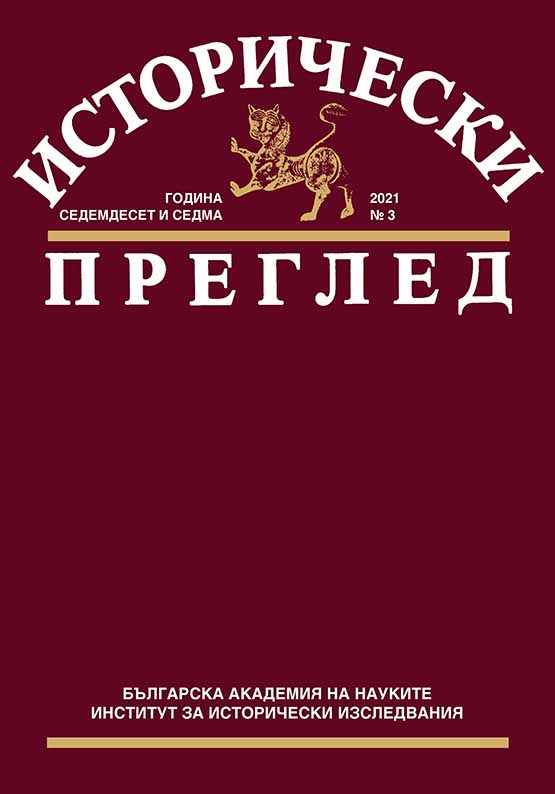
The study focuses on the development of the Bulgarian girls’ education in the historical-geographical region of Macedonia during the Revival, as an important stage in the emancipation of the female sex. It can be noted that the first girls’ schools in the district had a short life due to a number of difficulties in their functioning. It should not be forgotten that in the ethnically diverse Macedonian provinces of the Ottoman Empire, their opening was more an expression of local patriotism and an attempt to overcome Greek influence in cities with a rather mixed population. From the second half of the 19th century Bulgarian girls’ schools were organized in the larger cities largely thanks to the tireless work of the teachers from Sopot Nedelya Petkova and her daughter Stanislava Karaivanova. Although timid at this early stage, the issue of girls’ education involved many women and raised the issue of the women’s movement among Bulgarians in Macedonia.
More...
The article traces chronologically the most important moments of the development of the library at the Institute for Historical Studies – BAS from its establishment until 2020. Facts are collected about the state of the library fund in different years until today; the conclusions are illustrated with diagrams. Attention is paid to the work of the library nowadays and the services it provides. The separate collections and some valuable editions that the library owns are briefly revealed.
More...![Николай Аретов [автор и съставител]. Иван Найденов: за право и напредък. Мемоари. Писма. София, издателство „Кралица Маб“, 2019. 366 с., с илюстрации. ISBN 978-954-533-178-7](/api/image/getissuecoverimage?id=picture_2021_64418.jpg)

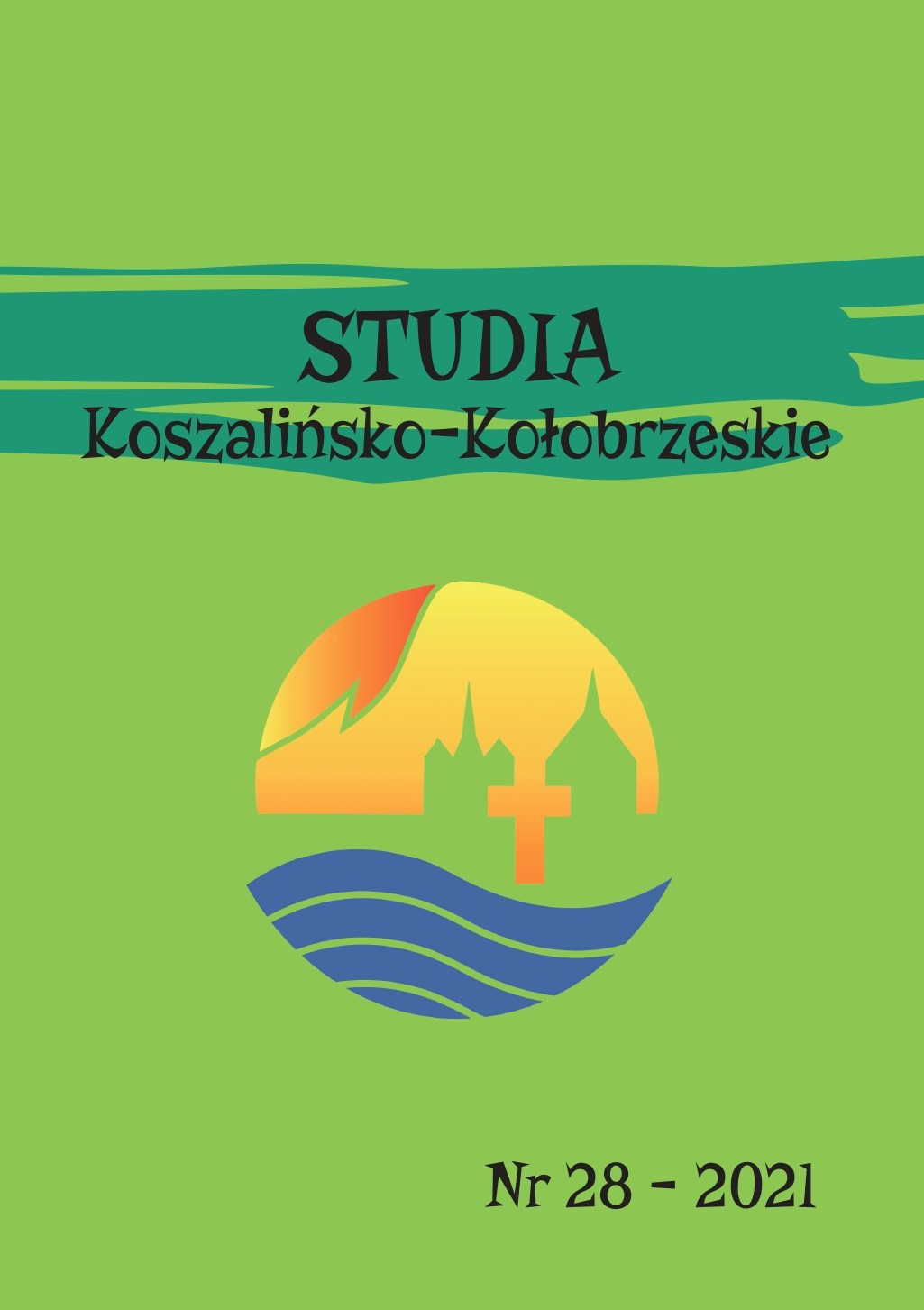
The article debates the issues of the personalist-communitarian concept of social life presented by Cardinal Stefan Wyszyński in the context of the political and social transformations taking place in Poland in the post-war decades. In his praxeological approach, Wyszyński perceives the breakdown of the Christian community and morality as the primary social problem caused by the destructive influence of a human being inscribed in the ideology of collectivism and individualism. Therefore, the above article analyzes the specifics of “incomplete” concepts of man, as well as criticizes the doctrines responsible for the adverse effects of the socio-political changes taking place in the post-war decades of Polish history. This paper also proposes ways in which contemporary models of social life can shape the socio-political reality based on a genuinely humanistic vision of man and citizen.
More...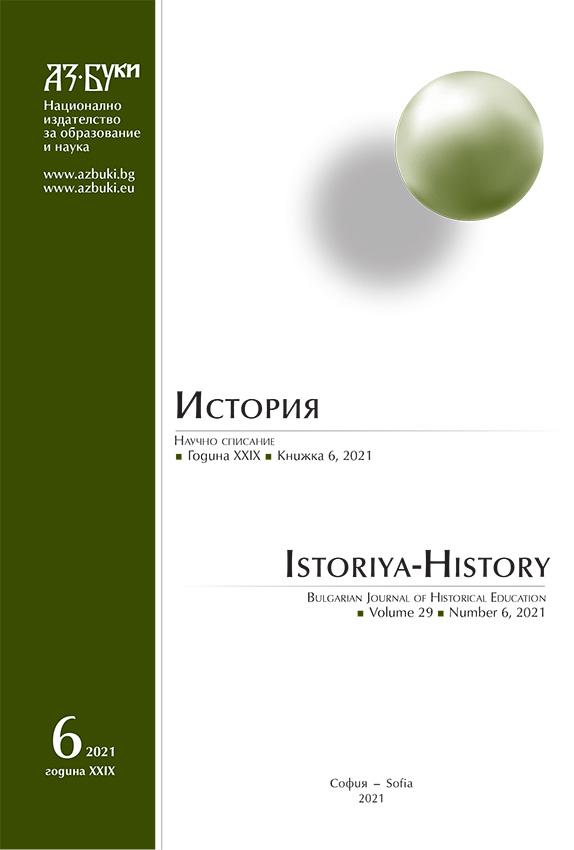

The paper analyzes how English Romanticism gave birth to a poetic care that managed to convey strong feelings to readers. Romanticism has put its mark on the numerous fields of research, but also on the individuality of Man. It is a phenomenon that still has important topics and hypotheses to analyze. We will consider the beauty of their work, the way it was expressed, because it is precisely this concept that is the reference point of the romantic literary phenomenon. In the same way we will also focus on the connection between the author's meditation and the concept of beauty. The preoccupation of the romantics was to give birth to a beautiful eternal to adapt the requirements of the nearby societies in the continuation of the movement. Most of the time, we will see a beautiful relationship, with the ugly antithesis. This is possible in the romantics, because they did not see the opposite of the ugly, but a way of highlighting a unitary system from which the idea that they wanted to present as eloquently as possible came out, using any method of expressing the inner self. They often used contrasting associations, of the beautiful / ugly, finite / infinite, good / bad type. The place where the romantic writer places the action is specific to the romantic lyricism, a favorable place for creation, a place where all the elements form an idyllic frame. English Romanticism was a sort of start on the road to modernity, towards a new sense of aesthetics.
More...
The subject treated by us in the present study reflects the analysis done on some lexical elements of Latin origin extracted for interpretation from "Manuscript 67" from the Library of the Romanian Academy in Bucharest. It contains the complete translation from the Slavonic language of the book "Ithica Ieropolitica" by the monk scholar Vartolomei Măzăreanu, in 1764. In interpreting lexical elements, after the etymology of one term or another is established, the meaning of the words is taken into account, where the context requires it. In most cases, the etymologies were extracted in particular from reference dictionaries such as DA and DLR, in order to determine precisely the lexical elements under study here. The terms encountered in the work of the archimandrite Vartolomei Măzăreanu were selected starting from a semantic dissociation, possible to see clearly, from certain locations, expressions and syntagms in which different lexemes appear attested. Regarding the aspect in which I chose to group the terms, in order not to resemble the way of presenting a dictionary, they were ordered according to their origin, in this case, in elements of Latin origin which, on one hand, they are no longer met in the modern version of the literary Romanian or which have a very limited use, being little known, obsolete or preserved only in certain dialect areas, and, on the other hand, in words created on Romanian land, also derived from words of Latin origin.
More...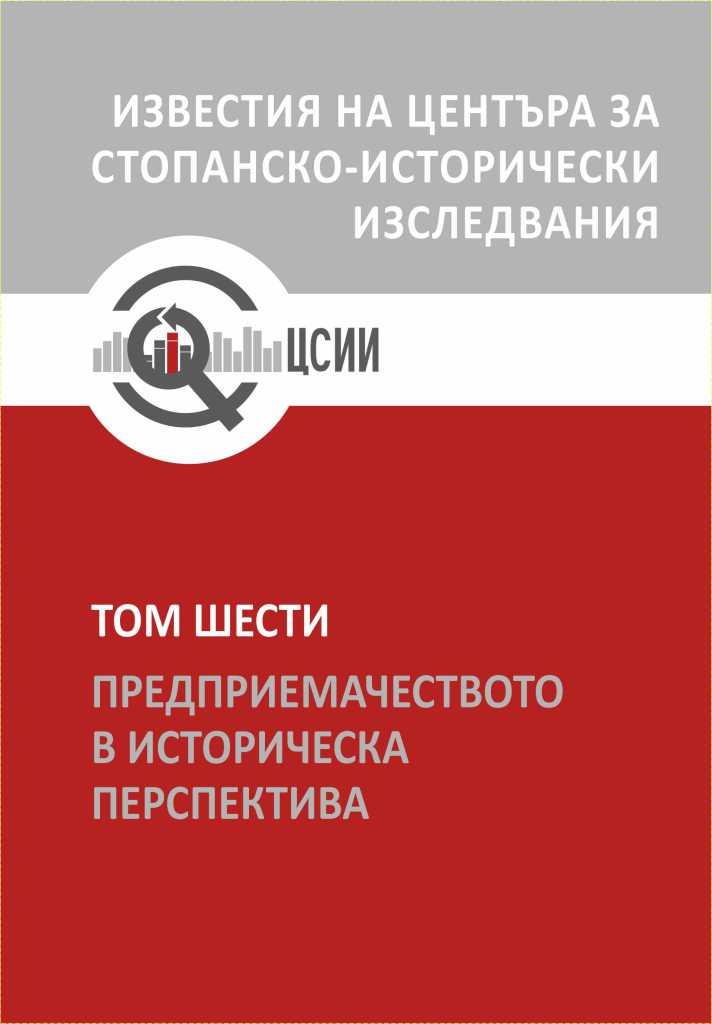
The article presents an analysis of bankruptcy as an important event of the market relations during the Bulgarian National Revival period. The problems arising around bankruptcies are the main motives for the creation of modern commercial law. The many bankruptcies in Europe in the early 19th century caused by the wars and the crises necessitated the codification of the commercial law. Then the French ‘Code de commerce’ appeared, promulgated in 1807. The first commercial laws of most countries in Europe and the world were created on the model of the French ‘Code’. The Ottoman Commercial Law, promulgated in 1850, was also created on the basis of French ‘Code de commerce’. Most of its content is aimed at bankruptcies. The article presents data on bankruptcies of Bulgarian merchants and companies in the 1850s, 1860s, and 1870s – how, when, and for what reasons they happen. Bankruptcies of some of the rich and well-known Bulgarian companies are also presented. At the end of the article the following main conclusions are made: 1/ On the Bulgarian market, as part of the Ottoman market, the bankruptcy was documented only in the third quarter of the 19th century, i.e. after the promulgation of the Ottoman Commercial Law. 2/ Most bankruptcies are caused by the general economic situation in the region and in Europe – the crises in the 1850s, 1860s, and 1870s, uncollected debts from traders and companies, bankruptcies of partners. The reason for the bankruptcies is also the poorly kept commercial documentation of the traders and the companies. 3/ There are also intentional bankruptcies („cunning bankruptcies” as defined by the Ottoman Commercial Law), but the data about them are incomplete and doubtful, as the real situation in most cases remains hidden from the authorities and the commercial courts. 4/ Bankruptcies directly concern the main professional and moral categories, assessed as important during the era – the honesty, locality, reputation, self-consciousness of the commercial class. A larger study is needed to show in which direction these categories are developing in the process of formation of the Bulgarian economic culture after 1878.45Key words: Bulgarian National Revival Period, bankruptcy, commercial courts, entrepreneur, entrepreneurship, economic culture, commercial reputation
More...
On the basis of the theoretical model for political entrepreneurship proposed by the author, initiatives and projects of Bulgarian public and political subjects from the beginning of the 19th century until the creation of the new Bulgarian state in 1879 are analyzed. Church-national movement is the longest and most effective political entrepreneurship, ending with the creation of a Bulgarian proto-state – the Exarchate. The manifestations of the evolutionary direction in the national liberation movement are considered, especially those in the period after the Crimean War (1853–1856) to the end of 1876 after the April Uprising. Legal political actions are a kind of political entrepreneurship, as the ultimate goal of most of them is to establish political autonomy of the Bulgarians in the diocese of the already established Bulgarian Exarchate without formal separation from the “inseparable” Ottoman Empire proclaimed in Paris in 1856. Most of the revolutionary Bulgarian initiatives from the period 1856–1876 can be characterized as “startup” projects with all the conventions in the transfer of a predominantly economic phenomenon from the 21st century to the specific environment of the 19th century. The lack or insufficiency of own funding is particularly important for the success of these endeavors and therefore their organizers resort to risky assistance from external forces, which predetermines and limits to a large extent the results even of those who achieve their political goals such as the April Uprising of 1876.
More...
At the end of 1871 the Ottoman government initiated emission of internal debt. The goal was to raise funds for the construction of railways in Anatolia. New bonds (esham-ı cedid) have been issued for a period of ten years, with an annual interest rate of 10%. The securities were offered for purchase to Ottoman subjects not only in Constantinople (Istanbul) but also in the Ottoman provincial centres. The available scattered and incomplete records suggest significant interest in the new bonds. Therefore, the emission can be considered successful, and the Ottoman government managed to sell its securities under the initially proposed conditions. It is important to be mentioned that apart from private individuals, provincial institutions such as orphans’ funds (eytam sandığı) and city councils (belediye meclisi) also invested their capital in the new bonds. These investments are particularly indicative and raise a number of questions. In addition, the emission itself and the purchase of securities took place at a time when the Ottoman financial system definitely did not enjoy a good reputation and its indebtedness to external creditors was a well-known fact. Eventually, the Sublime Porte went bankrupt in 1875. The article presents the author’s initial observations, and the conclusions cannot be considered definite. However, the information about the emission of securities from 1871–1872 suggests both the personal interest of investors and the ability of the Ottoman centre to skilfully use the assets of provincial institutions to finance its infrastructure projects.
More...
The following research is the first attempt in the Bulgarian-language literature to quantify the drivers behind the internal migration of the population in Bulgaria after 1878, which according to some authors (Palairet, 1997) is of key importance for the established post-liberation economic and social model. So far, hypotheses concerning migration drivers that are found in literature have not been put to formal testing. To test them statistically we collect all the relevant data from official statistical sources. Then we apply a regression analysis (both OLS- and GLS-based) to estimate the parameters of three models explaining migration at three levels: national, rural, and in a specific district (that of Pazardjik). We found no statistical support with respect to political and demographic determinants put forward in the literature, such as the “agrarian coup” that followed the mass-outflow of Turkish population around the Russo-Turkish War, or “revenge” for the 1876 Bulgarian atrocities. Instead, the empirical evidence supports the social and economic drivers of migration. It was the smaller economic opportunities in the mountain regions that pushed nearly 20 percent of Bulgarians towards fertile planes. Apparently, their main incentive was the availability of “free” arable land, regardless of its location, fertility, or infrastructural connectivity. Hence, the settlers of the last quarter of the 19th century can be portrayed as conservative entrepreneurs, embarking on unstudied and distant lands, where they seek not economic prosperity, but physical survival.
More...
The article traces the life of Stoyan Georgiev Pranchov, heir of a wealthy Revival merchant family from Koprivshtitsa as an example of the realization of the second generation of merchants after the Liberation. It is stated that his upbringing, education and personal qualities provide him with an opportunity for a commercial career. He graduated from the Vienna Academy of Commerce and the Higher School of Science and Politics in Paris, where he formed his economic and political views. During his studies in Paris (1882–1884) he worked for the interests of his father’s commercial house in Vienna “G. S. Pranchov&Cie”. His motives for becoming an independent trader in Bulgaria, and not in Vienna, are emerging. The significance of his scientific and journalistic activity is analyzed and evaluated. It is concluded that under the influence of various factors – health, brutal struggles during the political crisis of 1886–1887, and others, he fails to unleash his entrepreneurial and scientific potential. He died at the age of 27.
More...
Ruscho Vulkov Mirkovich was a typical representative of the modern Bul-garian economic elite formed during the Bulgarian Revival. His long and successful com-mercial biography is a convincing testimony to the deep and lasting economic and social changes that occurred in the nineteenth century, which are characteristic not only of his hometown Sliven, but also of the entire Bulgarian national territory. The professional experience he gained for over four decades in the field of trade with aba garment, wool, foreign merchandise, salt, foods, and other goods, allowed him to maintain a very high rate of commercial activity, particularly after 1878 at a number of market centres such as Sliven, Constantinople, Yambol, Burgas, and Straldzha. The well-known Sliven entre-preneur was fully committed to his trade endeavours and at the same time he was an active public figure – something typical for that period. After 1887, although of his re-spectable age, he turned to the field of tobacco, becoming a pioneer of one of the most successful industries in the Bulgarian commercial development by founding a tobacco factory in Yambol through the joint-stock company R. V. Mirkovich & Co. The available documents in the Bulgarian archives allow us to conclude that Ru-scho Mirkovich’s decision to engage with the tobacco industry was a carefully consid-ered step. He had the approval of his partners and attracted skilled experts to ensure the smooth running of the tobacco factory. The company was part of Yambol’s eco-nomic infrastructure from the late 1880s and throughout the 1890s. The present study focuses specifically on this aspect of Ruscho Vulkov Mirkovich’s active work as evi-dence of entrepreneurial sense and adaptability in the conditions of the dynamically changing economic reality of post-liberation Bulgaria.
More...
Hristo Raykov is an example of a rapidly getting rich industrialist. He was born in the village of Dalboki Tomchevtsi, Tryavna region, Dryanovo district, in 1896 in a poor family. From a very young age he focused on independent trade in wool and fabrics. In 1924 he settled permanently in Gabrovo. Having accumulated enough capital, the ambitious entrepreneur directs his interests to the industry to close the cycle of supply and processing of wool to the final product. In 1927 he was already a major shareholder and director of a textile factory. Hristo Raykov walked the path to wealth for twenty years – from a small trader, he managed to become the owner of factories in Gabrovo, Sliven and Sofia, for which companies work throughout the country. In 16 years he has increased its capital from BGN 5 million to BGN 200 million. Hristo Raykov is a man without special education, but with great ambition, will and energy, a man who does not trust accountants and directors. With the famous Gabrovo thrift, he personally manages his enterprises, knows the production in detail, knows what is done in every corner of his factories, always strives to be first. Maybe that’s why he earned the nickname “The Bulgarian Henry Ford” of his time. The nationalization on December 23, 1947 found him with assets of over BGN 1 billion. In the 1940s, Hristo Raykov was considered the most successful industrialist in Gabrovo and one of the richest people in Bulgaria.
More...
Based on interviews and publications in the press, the personal stories of several businessmen without proven ties to criminal groups or political authorities, who are among the successful businessmen so far, are examined. These are people from the real sector, from the middle class businessmen in the field of production of packaging and pumps for the perfume and food industry (Peyo Peev, Alfrida-Peev, Gabrovo) and for the production of high class meat products and sausages (Kiril Vatev, Tandem - V). On this basis, as a case study, some common features in their self-creation are derived. They show the difficulties and peculiarities in the self-creation of entrepreneurs in Bulgaria during the transition. The main ones can be defined as follows. The success of two is due to the accumulated preliminary experience and even capital, their personal qualities - perseverance, vision, strong spirit, their desire to follow and maintain a consistently high quality of their products. And last but not least - to the good pay of workers for quality work. Although they manage to create themselves in opposition to power and corruption, they subsequently seek politics to use it for their business interests. Charity is their way to establish themselves positively in society.
More...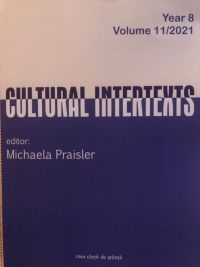
This article discusses the original translation style of St. Euthymius the Athonite (10th11th centuries), a great Georgian monk working in the Iviron Monastery of Athos (Greece), which was called an ‘omission-addition style’ in the scientific literature, and was entirely conditioned not by linguistic but by cultural-religious context. The main goal of the article is to examine that unique phenomenon we are dealing with in the form of his translations, that sheds light on how a translator may turn linguistic tools into cultural vectors of a society, a country, determining the main path for spiritual and intellectual development of the nation in a particular historical epoch and along the centuries. From the rich Greek theological literature, Euthymius the Athonite selected for translation those works that would best reflect the knowledge accumulated in that field at the time, and presented them to Georgian readers, still less knowledgeable in theological matters, in such a way that would best suit them and strengthen their Christian faith, on the one hand, and introduce them to the advanced Western thought, on the other. Research focus is on the translations of theological content. Based on the comparative analysis of the Greek-Georgian texts, I examine those methods and means that Euthymius the Athonite used to keep the Georgian nation from possible religious threats, misunderstandings, and difficulties that accompanied the misinterpretation of religious texts in the Middle Ages. Euthymius the Athonite laid a solid foundation for the process of Europeanization of Georgian literature and culture, which his descendants continued with dignity.
More...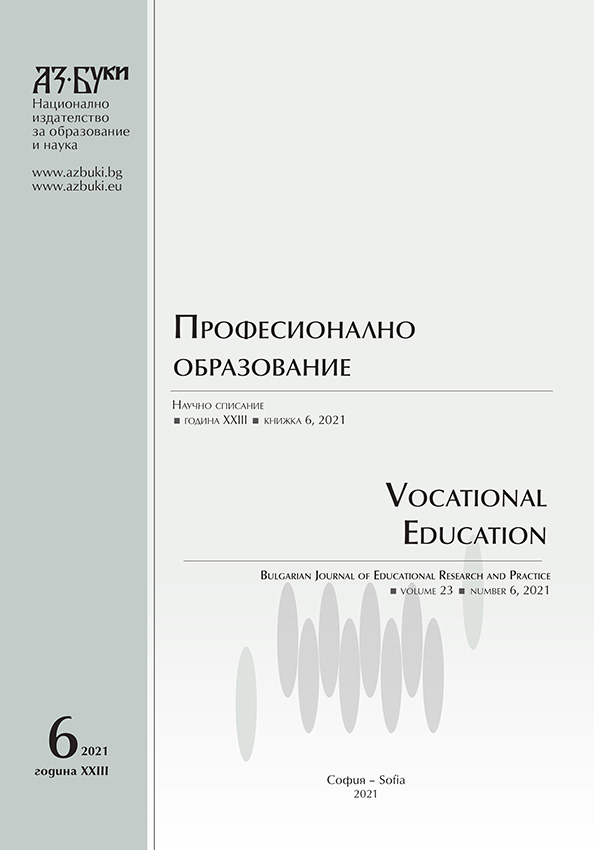
This article presents the main dimensions of the intercultural educational environment, systematized in the framework of research on contemporary intercultural educational programs for ethnographic and historical museums. In this context, the results of a study of the opinion of teachers on the need and importance of the implementation of intercultural educational programs for ethnographic and historical museums have been interpreted.
More...